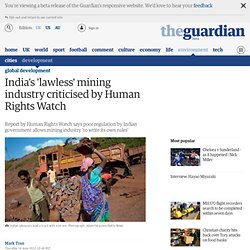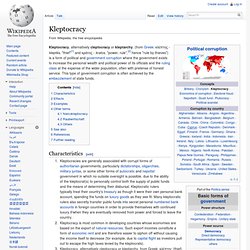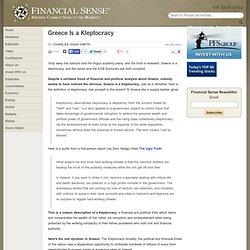

Is the World Bank under Jim Yong Kim calling time on privatisation? The appointment of Jim Yong Kim to the presidency of the World Bank is a signal that the development institution is changing, but it is by no means the first sign. In spring 2010, the World Bank committed to improving its cost and development effectiveness by focusing on three inter-related areas: results, openness and accountability. In an interview with the Bank's head of external affairs, Cyril Muller, I was struck by how keen the Bank seems to be to move on from its hubristic and ideological past; the speed with which many staff members want to consign the "Washington consensus" to the history books is breathtaking.
But I wanted to find out just how much the Bank has really changed on controversial issues. After three decades of pushing liberalisation and privatisation, it is not enough just to take the foot off the pedal. Is the Bank now prepared, for instance, to support governments wishing to (re-)nationalise key industries? Let's take some examples. India's 'lawless' mining industry criticised by Human Rights Watch. Government indifference and poor regulation have fuelled lawlessness in India's troubled mining industry and threaten serious harm to mining-affected communities, according to a Human Rights Watch (HRW) report.

The report: Out of control – mining, regulatory failure and human rights in India focuses on iron mining in Goa and Karnataka to illustrate a broader pattern of failed regulation, alleged corruption and harm to local communities. In Karnataka, BS Yeddyurappa resigned as chief minister last year after being indicted by an anti-corruption panel in an illegal mining scandal that allegedly cost the exchequer more than £1.8bn between 2006 and 2010. The southern Indian state, where illegal mining is rife, produces about 45m tonnes of iron ore a year and exports more than half of it to China. India's mining sector has experienced a boom driven by strong international demand. However, the sector is rife with illegality. How much can Sri Lanka help itself?
A Sri Lankan child. An oft-heard claim in Colombo today is that 'charity begins at home'. Photograph: Eranga Jayawardena/AP The role of charity and philanthropy in development is a subject of growing interest within the global aid community. As a result of slowing support from traditional funding sources, the activities of private foundations and voluntary initiatives now account for increasingly larger amounts of development assistance. Meanwhile, mounting calls for a more "moral capitalism" following the banking crisis have led to greater pressure on companies to develop inclusive business practices.
But much of the discussion so far has concentrated on the contribution of big global players such as the Gates Foundation. Our research in Colombo, Sri Lanka, is exploring indigenous forms of charity, philanthropy and development in the country. An oft-heard claim in Colombo today is that "charity begins at home", and ostensibly levels of charitable giving in Sri Lanka are huge. Fossil fuel subsidies must end, says Indian microfinance firm. A pico-hydro system financed by an loan from the SKDRDP microfinance firm in India. The company is calling for an end to fossil fuel subsidies. Photograph: Ashden awards Governments must end subsidies for fossil fuels and focus instead on supporting renewable energy sources, the executive director of an award-winning microfinance organisation said this week.
Speaking to the Guardian, LH Manjunath, from Shri Kshetra Dharmasthala Rural Development Project (SKDRDP) in southern India, which provides consumer loans for energy projects, said: "Most fossil fuels are subsidised. The [Indian] government is spending millions on subsidies. His comments came as his organisation received a gold Ashden award at a ceremony in London on Wednesday evening. SKDRDP usually lends $300-400 (£190-250), which has a payback time of around three years. "The government makes it so difficult to get subsidies for solar energy in India. "We need to work with each country on specific issues.
CANADA. Choque de Amor I. EUROPE. Middle East. UNITED KINGDOM. USA. Kleptocracy. Kleptocracy, alternatively cleptocracy or kleptarchy, (from Greek: κλέπτης - kleptēs, "thief"[1] and κράτος - kratos, "power, rule",[2] hence "rule by thieves") is a form of political and government corruption where the government exists to increase the personal wealth and political power of its officials and the ruling class at the expense of the wider population, often with pretense of honest service.

This type of government corruption is often achieved by the embezzlement of state funds. Characteristics[edit] Kleptocracies are generally associated with corrupt forms of authoritarian governments, particularly dictatorships, oligarchies, military juntas, or some other forms of autocratic and nepotist government in which no outside oversight is possible, due to the ability of the kleptocrat(s) to personally control both the supply of public funds and the means of determining their disbursal. Effects[edit] Examples[edit] Other terms[edit] Narcokleptocracy[edit] Video: Occupy Wall Street Occupies the World. "You Can't Pepper Spray A Mental Awakening" M.O.C. #94. Greece Is a Kleptocracy. Strip away the bailouts and the bogus austerity plans, and the truth is revealed: Greece is a kleptocracy, and the banks and the ECB Eurocrats are both complicit.

Despite a veritable flood of financial and political analysis about Greece, nobody seems to have noticed the obvious: Greece is a kleptocracy. Just as a refresher, here is the definition of kleptocracy. Ask yourself is this doesn't fit Greece like a supple leather glove: